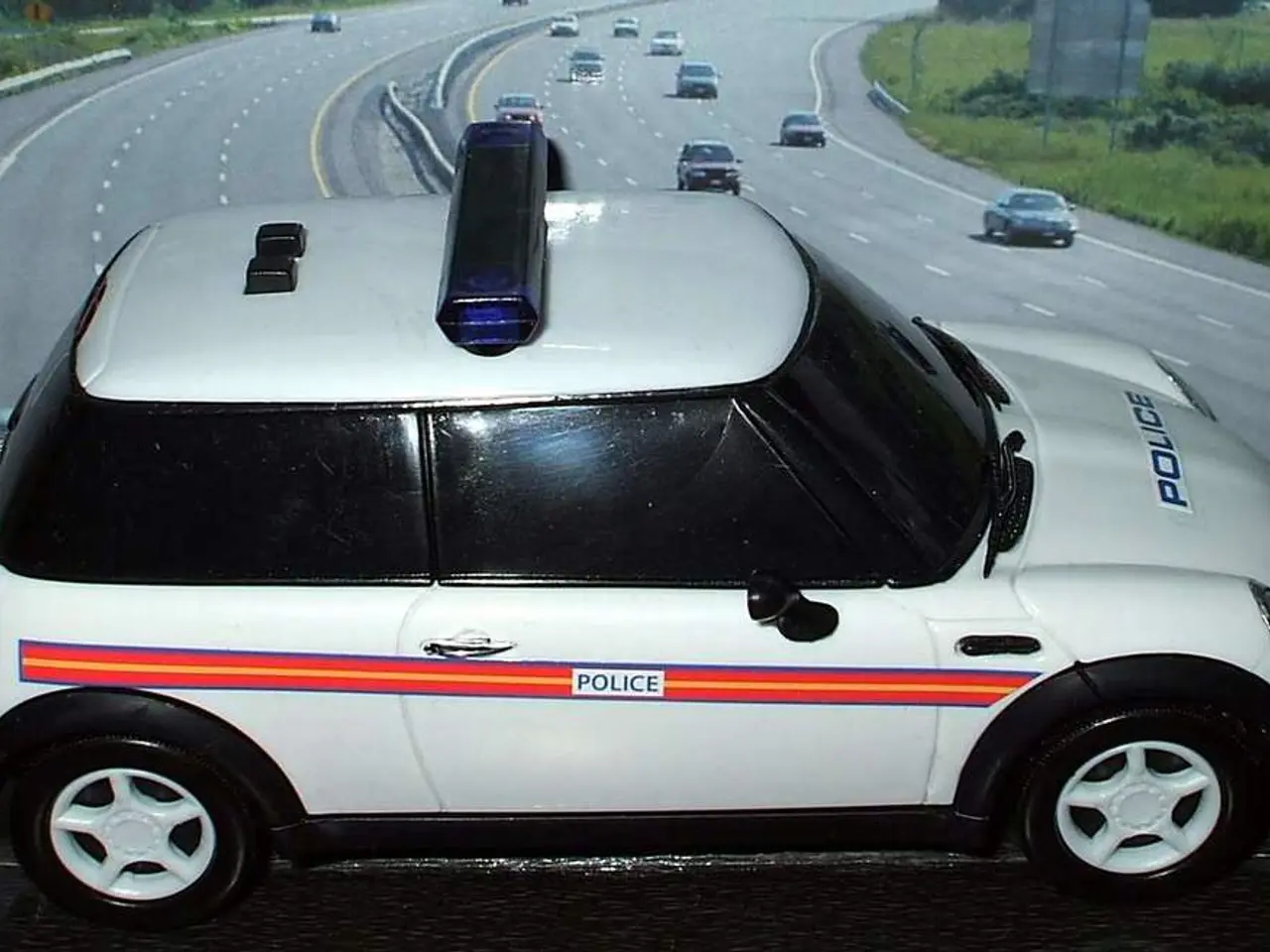Trump's assertive drive to command control over D.C. law enforcement could potentially serve as a blueprint for similar strategies in other urban areas
In the heart of the United States, a contentious issue has arisen concerning the role of federal authorities in local law enforcement, as President Donald Trump's intervention in Washington D.C.'s policing has set a potential precedent for other American cities[1][3].
Trump's actions in Washington D.C. have been marked by the creation of the Making D.C. Safe and Beautiful Task Force, which aimed to combat crime and enhance city infrastructure[2]. The police union in D.C. appeared to welcome the federal help, while critics warn this move risks undermining local control, could be an abuse of power, and might threaten public safety if replicated elsewhere[1][3].
The President's intervention was born out of an emergency he saw in Washington D.C., deploying approximately 800 National Guard troops to the city's streets[4]. Trump claimed that the city had been overtaken by violent gangs and bloodthirsty criminals[7]. However, Philadelphia's top prosecutor, District Attorney Larry Krasner, criticized Trump's moves, questioning the emergency justification[5].
The Home Rule Act allows a president to invoke certain emergency powers over the police department for 30 days, after which Congress must decide whether to extend the period[6]. Rep. Andy Ogles suggested this would give the president the time and authority needed to "crush lawlessness, restore order, and reclaim the capital once and for all"[6]. However, the leader of the D.C. Police Union, Gregg Pemberton, endorsed Trump's intervention, but emphasized it should not become permanent due to officers being stretched beyond their limits[6].
The potential impact on other cities includes:
- Encouraging federal takeover or intervention in local policing efforts during crime surges, possibly bypassing local authorities.
- Inspiring similar deployments of National Guard or federal forces in other municipalities, which could provoke political controversy and debate about states' and cities' rights versus federal authority.
- Prompting legislative and judicial scrutiny about the balance of power in crime-fighting efforts, especially where partisan politics are involved.
- Influencing public perception and policy toward "restoring order" with heavy federal involvement, potentially at the expense of traditional community-based policing models[2][3].
The Trump administration partially retreated from its effort to seize control of the Metropolitan Police Department after a judge urged both sides to reach a compromise[10]. This retreat, however, did not deter criticism from local officials and many citizens[9]. A coalition of activists called Not Above the Law denounced Trump's actions as a step towards seizing power[8].
Washington, D.C., a city with a mix of federal theme park attractions, downtown areas with restaurants and lobbyists, and economically depressed neighborhoods with issues related to drugs and crime, saw a record number of visitors in 2024, with over 25 million Americans and over 2 million people from abroad visiting[11]. Despite this, the National Guard deployment in Washington, D.C. was met with criticism[9].
The debate surrounding Trump's intervention in Washington D.C.'s policing is likely to continue, as it raises significant concerns about civil liberty, local autonomy, and effective law enforcement[1][3]. The issue has sparked a broader national discourse on federal versus local roles in public safety and could encourage more direct federal action in cities perceived as struggling with crime.
- The debate over federal intervention in local law enforcement, as seen in the current situation in Washington D.C., is causing a stir in the general-news domain, with discussions including issues like civil liberties, local autonomy, and effective law enforcement.
- Critics question whether a federal government's intervention in local crime-fighting efforts, such as the recent example in Seattle, could potentially lead to the undermining of local control, abuses of power, and threats to public safety.
- The Trump administration's intervention in D.C.'s policing has created an upcoming political issue that could impact local businesses due to the continued controversy and negative sentiment among citizens and local officials.
- Some politicians, like Rep. Andy Ogles, support the temporary federal takeover of local policing during crime surges, arguing it would give presidency the time and authority needed to "crush lawlessness, restore order, and reclaim cities once and for all."
- The heavy federal involvement in cities' policing, as shown by Trump's actions, might influence crime-and-justice policies, potentially favoring aggressive law enforcement measures over community-based approaches.







